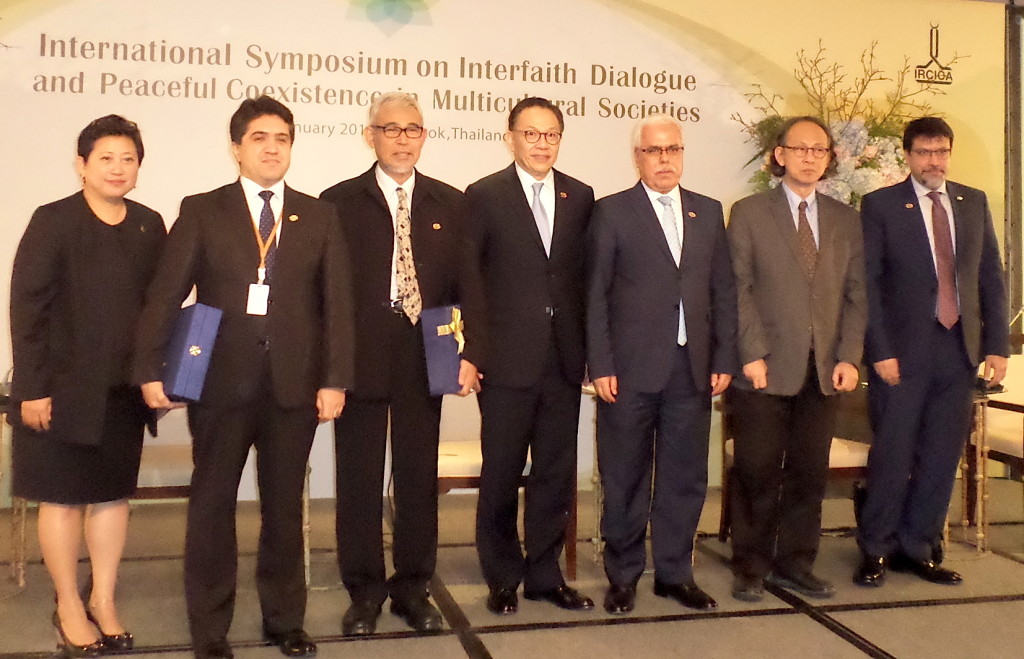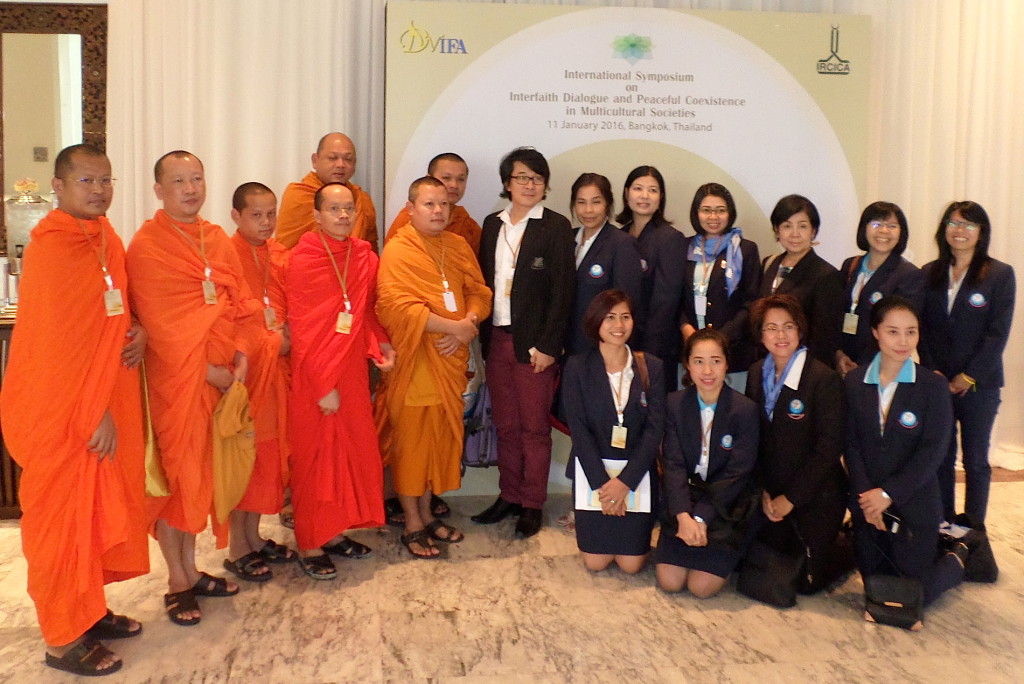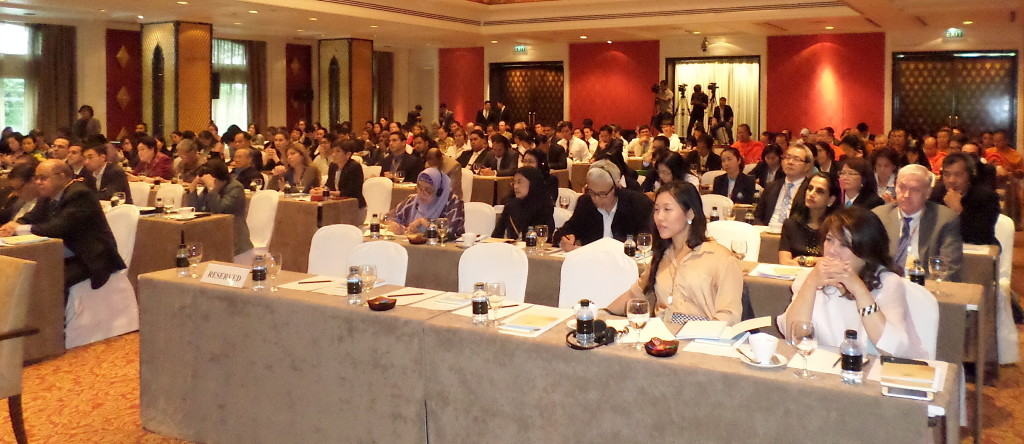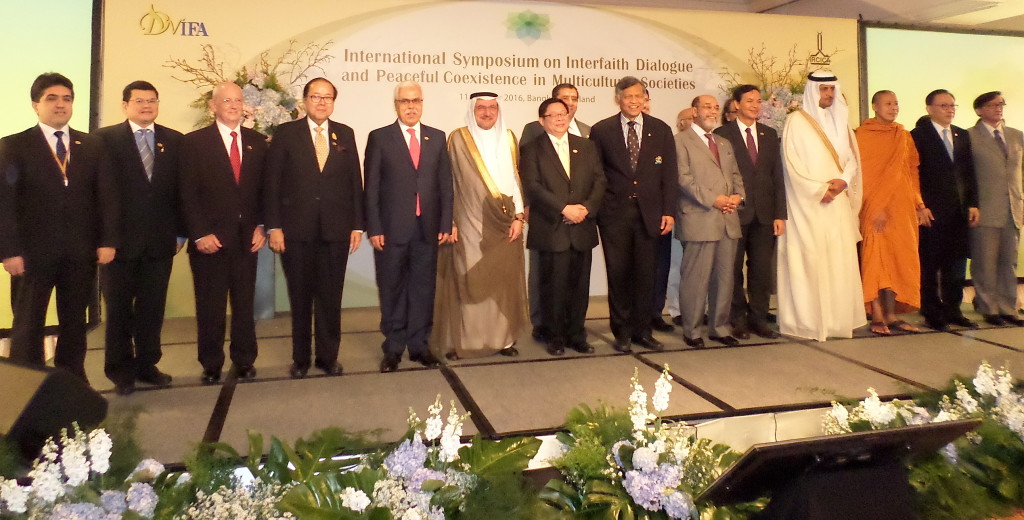14 Jan 2016
Prominent Thai Journalist says ASEAN media must “take control of the narrative” from Western wire-services
Bangkok — Journalists in Thailand and ASEAN must take control of the narrative from Western media wire-services in order to build a better understanding of global events, especially those involving religious and ethnic conflicts, according to one of Thailand’s most prominent writers on foreign affairs.
Speaking at a symposium on “Interfaith Dialogue and Peaceful Coexistence in Multicultural Societies”, co-sponsored by the OIC Research Center for Islamic History, Art and Culture (IRCICA) and the Thai Ministry of Foreign Affairs, Mr Kavi Chongkittavorn, Assistant Group Editor of The Nation Media Group said he was “fed up” with the narrative, led by mainly Western news agencies, “that has been dominating the discourse in this part of the world.”
He said that unless journalists in Thailand and ASEAN improve their networking opportunities with media in the Middle East and upgrade their knowledge level about global affairs, especially where conflicts and ethnic tensions are involved, “interfaith dialogue in the region will never change (anything) and we will be consumed by Islamophobia.”

Mr Kavi Chongkittavorn (second right). Other speakers and delegates at the symposium are (from right) – Dr Hassan Abedin, Head of the Department of Muslim Communities and Minorities OIC; Dr Halit Eren, Director General, OIC Research Centre for Islamic History, Art and Culture; Mr Tharit Charungvat, Thai Ambassador to Turkey; Dr Abdulla Numsuk, Executive Director of the Wasatiyyah Institute for Peace and Development, Sheikhul Islam Office of Thailand and Dr Sadik Unay, Associate Professor of International Relations & Senior Researcher, IRCICA. The lady at extreme left is from the Ministry of Foreign Affairs who moderated the session.
The comments from Mr. Kavi, who was the last speaker of the day, were the most practical to emerge from the day-long event. They were in line with the objective set out by the Secretary General of the Organization of Islamic Cooperation (OIC) Iyad Ameen Madani who noted in his opening remarks that for such events to have an impact, the conclusions and recommendations “must go outside the halls of this magnificent hotel ballroom.”
Two years in the preparation, the event was organised by the Devawongse Varopakarn Institute of Foreign Affairs, under the Thai MFA. Its mission statement was “to define and encourage scholarly perspectives in understanding and promoting multiculturalism and multi-faith coexistence,” and recommend ways to promote “an understanding of diversity and pluralism, eliminating extremism as well as developing a culture of dialogue and peace.”
According to the symposium introduction, “Globalisation has paved a clear path for an increasingly interconnected world. It has led to enhanced mobility and the meeting of different cultures and creeds. Diversity can and must be cultivated to continue to be humanity’s strength. Our diversity underpins countless possibilities for social progress, development, innovation and overall advancement. In such a setting, the international community should do more to take advantage of the opportunities that interfaith dialogue presents.”
Thailand, which became an observer state in the OIC in 1998, hosted the event under its strategy to build relations with the Islamic world as a stepping stone towards ending a long-running separatist insurgency and establishing a lasting peace in its Southern provinces.
The role of the media in reporting such ethnic conflicts and impacting on public perception of religions, especially Islam, came up repeatedly during the discussions. The final session at which Mr. Kavi spoke was devoted entirely to the role of the media, and Mr. Kavi was the only journalist on the panel.
He did not mince any words.
Kavi outlined what he called the three failures which he made clear applied only to media “in this part of the world”: 1) failure to report the “better half” of interfaith developments; 2) failure “to create our own narrative”, and 3) failure to network and publish each other’s analysis and perspectives.
Elaborating on those points, he said that violence in any Islamic country “makes headlines for weeks and weeks. But nobody writes about good works by religious leaders who preach tolerance. Journalists don’t see the point, they don’t keep abreast with what’s going on.” On the contrary, he expressed puzzlement about how a terrorist group like IS can be so successful in using media, especially social media, to attract recruits for something so wrong.
He said, “It is very important for journalists to create their own narrative. Most journalists in Thailand and ASEAN learn about the world through wire services, such as Reuters. The (the wire services) dictate the narrative. They disseminate the information. Whereas we lack networks amongst ourselves. We don’t even publish the views of our own journalists.”
He identified Malaysia and Indonesia as two key countries that need to come up with their own narrative as a counterbalance to the current narrative emerging from the situation in the Middle East. “The situation in this part of the world is different. Why can’t we have our own narrative that focuses on the better half?”
Mr. Kavi said that journalists in Thailand seldom write about Islam and the conflict in southern Thailand as they fear making mistakes. “Most of the time, they translate analysis from the wire services, particularly the Western wire services. I can’t blame them as that’s all the information they get.”
He asked if journalists in Turkey and Middle East ever publish any articles from Indonesian and Malaysian journalists? “None. Zero. But I don’t blame them. I blame us that we fail to create popularise our narrative.”
Referring to the impact of the integrated ASEAN community, he said the region should be proud of the integration. However, he added, “we are still disconnected as far as media is concerned. We don’t have a sense of community and belonging. It is important for ASEAN media networks to be connected so tht good stories of interfaith (progress) can be spread out through this network.”
He said Malaysia has one of the largest media networks, the Non-aligned News Network (NNN) “but NNN does not write about interfaith issues in ASEAN.”
“We need a new generation (of journalists) to write about this better half. I am fed up with the other half that has been dominating the discourse in this part of the world. Journalists like me have the privilege of sitting here and listening to prominent scholars about this. But without journalists’ understanding and coming out with the other half, interfaith dialogue in the region will never change (anything) and we will be consumed by Islamophobia (emanating) from the Middle East. If you fail to highlight the story of the other half, the world will never be informed about it.”
Asked by this editor during the Q&A about journalists not knowing the difference between information and disinformation, Mr. Kavi agreed this was an issue.
While veteran journalists know the difference, the young ones often don’t, he said. They also have to compete with 24 digital TV channels and social media, including the 140-character Twitter. Very often, he said, Thai journalists land up talking to the same people who put out information over Twitter. Same applies with coverage of Thai politics. He then stopped himself, saying that if he said any more, he may have to be sent for an “attitude adjustment” course as a guest of the military government now in power in Thailand.
 Some of the MFA staff posing with Buddhist monks who attended the symposium. |
 The symposium drew a strong attendance from members of the diplomatic corps in Thailand, academics, media and civil society groups. |
 OIC Secretary-General Iyad Ameen Madani (in Arab robes, centre) with other speakers at the symposium. |
